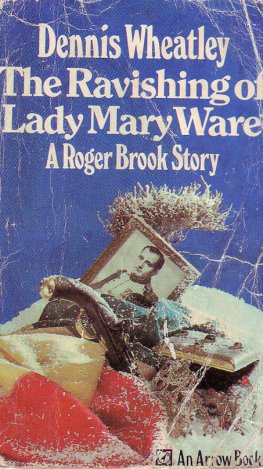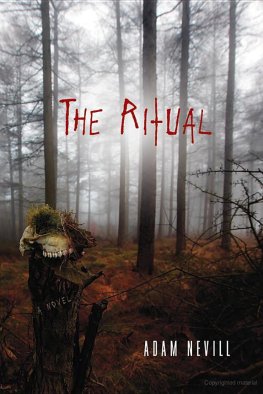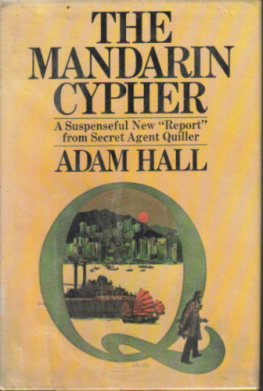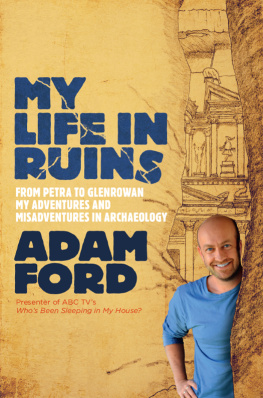Unholy Crusade
by Dennis Wheatley
CHAPTER I
Lucky Adam Gordon
ADAM FALLSTROM GORDON had come to Mexico to collect material for a book.
He had recently made a big name as a writer of unusual adventure stories with authentic historical backgrounds. The adventures were the product of his mind, so it was background material for which he had come in search. But Fate plays many a strange trick and, before he was much older, he was soon to find himself, all against his will, the central figure in a series of situations more desperate than any he could have thought up.
He had arrived in Mexico City in the early hours of the previous morning and on this, his first evening; he was sampling highlife in the roof restaurant on the fourteenth floor of the Del Paseo Hotel. The big room was dimly lit; three sides of it consisted of plate glass windows. Through them, owing to the crystal clear air up there at seven thousand five hundred feet, could be seen the million twinkling lights that at night turned the city into a fairyland stretching for miles.
A small band played soft, seductive music. Immaculate waiters moved softly from table to table occupied by fashionably dressed women and prosperous looking men. Although it was past eleven o'clock, most of them had only just started dinner because upper class Mexicans keep Spanish hours. Many of the women were strikingly good looking. Here and there a table light glinted on their diamonds, emeralds or rubies. It was a scene of grandeluxe that could not have been surpassed anywhere in Europe.
Adam Gordon was twenty eight. As he looked about him while waiting for his first course of avocado pear filled with minute eels, he felt that in fourteen years he had come a long, long way from the poor fishing village on the east coast of Scotland where he had been born, and that, perhaps, his friends were right in nicknaming him `Lucky' Gordon.
But none of them knew the whole of his story. They based their assessment of him on his recent good fortune and, no doubt, were a little envious of his physical attributes; for he had a good brain, a fine body and had never known a day's illness. He was not a giant, but he stood six foot three in his socks, with broad shoulders, and his hands were so strong that he could bend an iron bar. He was fair skinned and freckled, had pale blue eyes a little on the small side, a straight nose, good teeth, and thick, red gold hair which waved despite his efforts to brush it flat. His firm chin was also covered with short, crisp, red gold hair; for he had grown a beard while doing his National Service in the Royal Navy and had decided to keep it. In his Navy days his mates had nicknamed him `the Viking', and that had been truly apt, as he had inherited strong strains of Norse blood from both his mother and father.
From his late teens onward, wherever he went his striking appearance attracted the interest of girls and women. Several of them at nearby tables had been casting covert glances at him ever since he had entered the restaurant, but for some time past he had deliberately ignored such overtures. For him women, in the persons of both Polly and Mildred, had meant only brief periods of enjoyment followed by bitter disenchantment. Finding that absorption in his work enabled him to do without romantic attachments, he had made up his mind not to let himself become seriously involved again.
Unlucky as he had been in love, he had certainly been lucky in other ways extraordinarily lucky because Fate had played him a number of really scurvy tricks that had looked like destroying for good any prospect of his advancement. Yet, after each had come an entirely unexpected break, lifting him from the rut in which it seemed he had foundered.
He had arrived in Mexico City only very late the previous night and had no introductions; so he was dining alone. While he drank his daiquiri cocktail he amused himself by recalling the strange seesaw of events which, interspersed with spells of desperate poverty, had now brought him to affluence.
Adam's father, Jamie Gordon, had come from Findhorn in Morayshire and had started life as a fisherman. Tall, strong and level headed, he had made a useful hand on a trawler; but he had had only a rudimentary education, so had expected to spend the whole of his working life at sea. But one day in Inverness he had met Gurda Fallstrom. She was there to see a lawyer, as her father had recently died and, having lost her mother when she was still in her teens, she had come into his estate.
Gurda was as fine and stalwart a woman as Jamie was a man and from that very first evening, when they had supped together off kippers and tea in the house of a mutual friend, they had known that they were made for each other. But Gurda was most averse to taking a husband who would frequently be away from her for considerable periods and, through being a fisherman, might at any time be drowned in a storm.
The estate she had inherited consisted only of an old house further north in Sutherland, not far from the estuary of the Helmsdale river, and a few hundred pounds. But a cousin of hers owned the fish net factory in the nearby village of Portgower and it was arranged that Jamie should be given a job there.
The house was centuries old and perched on the very edge of a high cliff. It was much larger than Jamie had expected, for the Fallstroms had once been comfortably off; so it contained numerous pieces of good, if worn, furniture and a collection of several hundred old books.
Jamie would have been happy to make his home with Gurda in a butte and ben; but to live with her in such surroundings was, to him, like being in the seventh heaven, and he worked at his new job with such a will that, within three years, he was made foreman at the net factory.
To add to their contentment the couple were blessed with five handsome and healthy children: two girls and three boys, of which Adam was the youngest and, in due course, the cleverest. His childhood in the house on the cliff could not have been happier and he was his mother's favourite.
For this there was a special reason. Gurda was a very unusual person. Like many Scots she was that strange mixture of down to earth good sense and visionary subject to psychic influences. But in her case this had developed into a definitely dual personality. Normally she was a practical, hardworking housewife, but at times she neglected everything and would sit dreaming for hours. During these periods it was evident that she was living in another world. She even talked to herself and recited long poems in a strange language which she told her family was ancient Norse.
The only explanation for these semi trances seemed to be that n an earlier incarnation she had been the wife of a Viking chieftain and, in that role, had known such exceptional happiness that, from time to time, her spirit was drawn back to re experience episodes in it. She was herself convinced of that and, although when she returned to normal she could recall these `dreams' only hazily, she could describe what life had been like in the time of the Scandinavian Vikings.
Her husband and elder children all rather unimaginative people regarded `Mother's day dreams' with mild amusement and never questioned her about her `other life'. But Adam, from the time he could think coherently, had been fascinated and never tired of sitting at her feet asking her about the Norsemen and the long ships in which they sailed each summer to plunder the coast towns of England, Ireland and France.
She told him of the long winters when there were only a few hours of daylight, the great storms that howled round the house and the softly falling snow that made it impossible to travel for more than a short distance. But, snug in their houses, they saw the winter through: the men amusing themselves making fine wood carvings of snake heads for the prows of their ships, or hewing oars and tools to cultivate the land, while the women worked at their weaving or sewed the skins of trapped animals into fur hoods and jackets.
Next page






